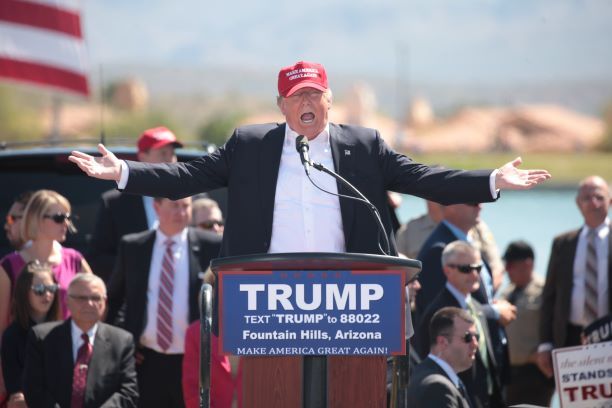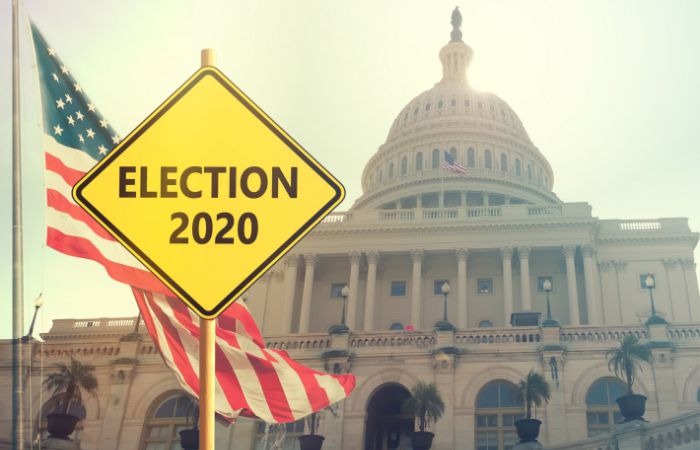Two of the three presidents in this century, George Bush and Donald Trump, initially won office by coming in second in the popular vote. The electoral college was supposed to have “a moderating influence” on the competition among candidates. It didn’t work very well.

Time has not been kind to a celebrated defense of the electoral college.
Most Americans know the president is chosen by 538 electors divided among the states and the District of Columbia, and pegged to the sizes of congressional delegations from three to 55. Some want a nationwide popular vote instead, while others defend the system vigorously.
In 2001, Michael Uhlmann, a constitutional scholar and Claremont McKenna professor of law, published a reflection on the US presidential electoral system, following the 2000 presidential election in which George W. Bush lost the popular vote but won the presidency.
Even today, defenders of the electoral college point to his essay as an eloquent defense of the American electoral system. Soon after Uhlmann’s death in autumn 2019, The American Mind, a publication of the conservative Claremont Institute, reprinted the essay as part of his legacy. It said that Uhlmann’s defense of the electoral college had been one of his greatest triumphs. Perhaps so, but his 2001 essay has not aged well.
Altering Political Customs
Uhlmann called the 2000 election “one for the books” and warned that electing a president by direct popular vote would “alter our political customs”.
“The last time this happened was 1888,” he wrote of elections in which a person wins the presidency while losing the popular vote, adding that “an event that occurs once every 100 years or so” is no constitutional crisis. The electoral college system “has regularly produced a popular-vote majority,” he said.
That was then. Today we know that two of the three presidents in this century initially won office by coming in second, with George Bush losing the popular vote to former vice president Al Gore by half a million votes and Donald Trump losing the popular vote to Hillary Clinton by 2.9 million votes. By historical standards Clinton Trounced Trump, winning a popular margin greater than 10 other presidents.
Such strange outcomes are possible because the person winning a plurality of votes in a state generally gains all its electoral votes, and because small states punch far above their weight. Each state gets one electoral vote per House member and two for its senators, no matter how tiny its population.

No Moderating Influences
Another of Uhlmann’s arguments was that the electoral college system has “moderating influences.” He opined that the presidential electoral system “exerts a powerfully moderating influence over candidates’ thought and behavior” and called it one of the contributing factors to “a spirit of moderation and compromise.”
There is little that supporters and opponents of President Donald Trump agree on, but few would say he exemplifies a “spirit of moderation and compromise.” Many of his supporters were enthusiastic precisely because he promised to shake things up and make changes shunned by moderates. Trump may be the embodiment of a phrase former conservative Sen. Barry Goldwater made famous in accepting the Republican presidential nomination of 1964, declaring that “extremism in the defense of liberty is no vice.”
Critics may not see Trump as a defender of liberty but they would agree that he is no moderate, breaking with tradition in both the nation and the Republican party. For example, before Trump Republicans were the party of free trade and Democrats leaned toward protectionism. Today, neither party supports free trade vigorously.
Trump may be elected this year without gaining the most votes cast, making history. Never before has someone taken a second term by coming in second, winning re-election while losing the popular vote. That would be new and—in Uhlmann’s words—alter our political customs.
Anyone who wants to defend the electoral college will need to find other reasons for its preservation.
David Lawsky was with Reuters for 22 years in Washington, Brussels and San Francisco.
The ProMarket blog is dedicated to discussing how competition tends to be subverted by special interests. The posts represent the opinions of their writers, not necessarily those of the University of Chicago, the Booth School of Business, or its faculty. For more information, please visit ProMarket Blog Policy.






